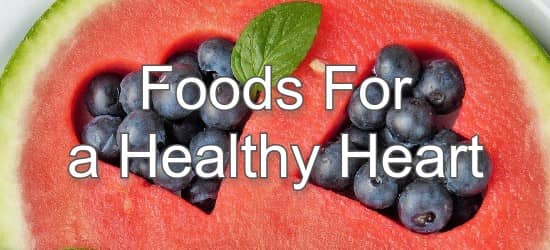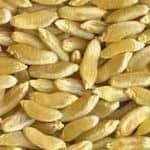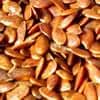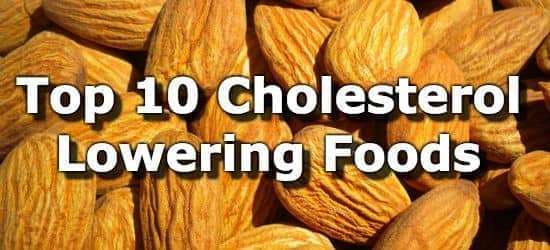15 Best Foods for a Healthy Heart and Cardiovascular System

One of the easiest ways to avoid heart disease and stroke is to follow a heart-healthy diet. The foundation of a heart-healthy diet is built on high-fiber whole foods. It should include plenty of fruits, vegetables, whole grains, pulses, nuts, seeds, and fish.
Processed foods, red meat, and other foods high in saturated fats should be minimized, while trans fats should be completely avoided.
Foods that can help maintain, protect, and improve the health of the cardiovascular system include oily fish, oats, soya, almonds, fruits, vegetables, pulses, olive oil, turmeric, blueberries, and flax seeds.
These heart-healthy foods work by lowering blood pressure, reducing cholesterol levels, improving the health and function of blood vessels, and reducing harmful processes such as oxidation and inflammation in the body.
The heart-healthy foods below are scientifically proven to benefit the cardiovascular system and are healthy additions to any diet.
List of Foods for Heart Health
-
 1. Oily Fish + Add
Oily Fish contain omega-3 fatty acids which provide multiple benefits for the cardiovascular system (1,2). Studies show that omega-3s lower blood triglyceride levels (3) and high triglycerides are a risk factor for cardiovascular disease. The omega-3s EPA and DHA found in fish are also associated with lower blood pressure and improved blood vessel function (4,5). Omega-3s also have anti-inflammatory effects in the body.
1. Oily Fish + Add
Oily Fish contain omega-3 fatty acids which provide multiple benefits for the cardiovascular system (1,2). Studies show that omega-3s lower blood triglyceride levels (3) and high triglycerides are a risk factor for cardiovascular disease. The omega-3s EPA and DHA found in fish are also associated with lower blood pressure and improved blood vessel function (4,5). Omega-3s also have anti-inflammatory effects in the body.
Nutrition Facts for Cooked Atlantic Salmon (Farmed). -
 2. Oats + Add
Oats and other foods high in soluble fiber (apples, pears, eggplant, okra, beans) have cholesterol-lowering properties. The sticky "viscous" fiber they contain binds to cholesterol in the gut and "sweeps" it out of the body. Oats in particular, (along with certain medicinal mushrooms and barley) contain a type of soluble fiber called beta-glucans, which has especially potent cholesterol-lowering and other cardio-protective properties (6). Studies show that regular consumption of beta-glucans can reduce total cholesterol by 5-10% in as little as 4 weeks (7).
2. Oats + Add
Oats and other foods high in soluble fiber (apples, pears, eggplant, okra, beans) have cholesterol-lowering properties. The sticky "viscous" fiber they contain binds to cholesterol in the gut and "sweeps" it out of the body. Oats in particular, (along with certain medicinal mushrooms and barley) contain a type of soluble fiber called beta-glucans, which has especially potent cholesterol-lowering and other cardio-protective properties (6). Studies show that regular consumption of beta-glucans can reduce total cholesterol by 5-10% in as little as 4 weeks (7).
Nutrition Facts for Cooked Oatmeal. -
 3. Soya + Add
Soya contains substances called isoflavones and plant sterols, both of which have cholesterol-lowering effects. Consuming 25g of soya protein per day produces measurable benefits by reducing LDL ("bad") cholesterol by around 3-4% (8). Avoid highly processed soya foods such as soya bars, flavored soya yogurts, and foods containing soya-protein isolate. Instead choose traditional foods such as tofu, tempeh, miso, and soya beans (edamame).
3. Soya + Add
Soya contains substances called isoflavones and plant sterols, both of which have cholesterol-lowering effects. Consuming 25g of soya protein per day produces measurable benefits by reducing LDL ("bad") cholesterol by around 3-4% (8). Avoid highly processed soya foods such as soya bars, flavored soya yogurts, and foods containing soya-protein isolate. Instead choose traditional foods such as tofu, tempeh, miso, and soya beans (edamame).
Nutrition Facts for Boiled Soybeans (Edamame). -
 4. Almonds + Add
Almonds and other nuts and seeds are heart-healthy foods providing healthy monounsaturated fats, plant sterols, minerals, fiber, and vitamin E. People who eat almonds regularly have a reduced risk of coronary heart disease (9). This is due to various beneficial effects including reducing inflammation, lowering cholesterol, and supporting weight loss. Several studies show that a daily handful of almonds reduces LDL (bad) cholesterol, and maintains HDL (good) cholesterol (10,11,12).
4. Almonds + Add
Almonds and other nuts and seeds are heart-healthy foods providing healthy monounsaturated fats, plant sterols, minerals, fiber, and vitamin E. People who eat almonds regularly have a reduced risk of coronary heart disease (9). This is due to various beneficial effects including reducing inflammation, lowering cholesterol, and supporting weight loss. Several studies show that a daily handful of almonds reduces LDL (bad) cholesterol, and maintains HDL (good) cholesterol (10,11,12).
Nutrition Facts for Almonds. -
 5. Fruits and Vegetables + Add
Eating plenty of fruit and vegetables is one of the best ways to supply your body with potassium, which can help lower blood pressure. The DASH (Dietary Approaches to Stop Hypertension) diet, developed by scientists includes 10 servings of fruit and vegetables per day (along with a low salt intake) and has been shown to lower blood pressure in just a few weeks in people with and without existing high blood pressure (13,14).
5. Fruits and Vegetables + Add
Eating plenty of fruit and vegetables is one of the best ways to supply your body with potassium, which can help lower blood pressure. The DASH (Dietary Approaches to Stop Hypertension) diet, developed by scientists includes 10 servings of fruit and vegetables per day (along with a low salt intake) and has been shown to lower blood pressure in just a few weeks in people with and without existing high blood pressure (13,14).
Nutrition Facts for Cooked Spinach (Boiled, Drained). -
 6. Pulses + Add
Consuming more pulses helps keep your heart healthy and reduces your risk of heart disease (15). Pulses such as beans, lentils, peas, and chickpeas (garbanzo beans) can help lower LDL (bad) cholesterol (16). A daily intake of 2 servings has been shown in studies to lower cholesterol by 6% over 2 months (17). This is only in one trial, so more studies are needed to confirm the cholesterol-lowering effects. Regular consumption of pulses may also benefit other cardiovascular risk factors including blood pressure, platelet activity, inflammation, and oxidation (18).
6. Pulses + Add
Consuming more pulses helps keep your heart healthy and reduces your risk of heart disease (15). Pulses such as beans, lentils, peas, and chickpeas (garbanzo beans) can help lower LDL (bad) cholesterol (16). A daily intake of 2 servings has been shown in studies to lower cholesterol by 6% over 2 months (17). This is only in one trial, so more studies are needed to confirm the cholesterol-lowering effects. Regular consumption of pulses may also benefit other cardiovascular risk factors including blood pressure, platelet activity, inflammation, and oxidation (18).
Nutrition Facts for Cooked Lentils (Boiled) (Mature Seeds). -
 7. Ancient Whole Grains + Add
Ancient wholegrains such as khorasan wheat (kamut), spelt, farro (emmer), einkorn, millet and teff provide a wide variety of health benefits including promoting cardiovascular health (19). Improvements include reductions in LDL cholesterol, reduced inflammation, improved blood vessel function, and lower blood sugar levels (20). Studies have found that consuming bread made from ancient grains can lead to reductions in cholesterol of 4-7% after 2 months (21,22).
7. Ancient Whole Grains + Add
Ancient wholegrains such as khorasan wheat (kamut), spelt, farro (emmer), einkorn, millet and teff provide a wide variety of health benefits including promoting cardiovascular health (19). Improvements include reductions in LDL cholesterol, reduced inflammation, improved blood vessel function, and lower blood sugar levels (20). Studies have found that consuming bread made from ancient grains can lead to reductions in cholesterol of 4-7% after 2 months (21,22).
Nutrition Facts for Cooked Kamut. -
 8. Olive Oil + Add
Replacing saturated fat with monounsaturated fats, such as those found in olive oil has benefits for heart and general health. Olive oil is believed to be one of the important health-promoting foods in the heart-healthy Mediterranean diet (23). One study observing people at high risk of cardiovascular problems found that consuming more olive oil led to a 30% reduced risk of heart disease. (24) As well as healthy fats, olive oil is rich in beneficial compounds called polyphenols with protective antioxidant and anti-inflammatory effects (25).
8. Olive Oil + Add
Replacing saturated fat with monounsaturated fats, such as those found in olive oil has benefits for heart and general health. Olive oil is believed to be one of the important health-promoting foods in the heart-healthy Mediterranean diet (23). One study observing people at high risk of cardiovascular problems found that consuming more olive oil led to a 30% reduced risk of heart disease. (24) As well as healthy fats, olive oil is rich in beneficial compounds called polyphenols with protective antioxidant and anti-inflammatory effects (25).
Nutrition Facts for Olive Oil. -
 9. Tomatoes + Add
Tomatoes are a top source of lycopene, an antioxidant linked with protecting the heart (26). Oxidation of LDL cholesterol is believed to be a key process in the development of atherosclerosis, which leads to heart disease and lycopene may help reduce this. There is also evidence that it has other protective effects, including inhibiting cholesterol synthesis, promoting LDL breakdown, and positively influencing blood vessel function (27). Population studies have linked higher blood lycopene levels with a reduced risk of heart disease, stroke, and heart attacks (28).
9. Tomatoes + Add
Tomatoes are a top source of lycopene, an antioxidant linked with protecting the heart (26). Oxidation of LDL cholesterol is believed to be a key process in the development of atherosclerosis, which leads to heart disease and lycopene may help reduce this. There is also evidence that it has other protective effects, including inhibiting cholesterol synthesis, promoting LDL breakdown, and positively influencing blood vessel function (27). Population studies have linked higher blood lycopene levels with a reduced risk of heart disease, stroke, and heart attacks (28).
Nutrition Facts for Tomatoes. -
 10. Turmeric + Add
Turmeric contains curcumin, which has potent anti-inflammatory and antioxidant properties, both of which are beneficial for heart health (29). Turmeric supplements have been shown to improve blood flow and blood vessel health in middle-aged and older adults (aged 45-74) after just 12 weeks (30). There is also preliminary evidence that it can inhibit platelet aggregation (31,32), reducing the risk of blood clot formation.
10. Turmeric + Add
Turmeric contains curcumin, which has potent anti-inflammatory and antioxidant properties, both of which are beneficial for heart health (29). Turmeric supplements have been shown to improve blood flow and blood vessel health in middle-aged and older adults (aged 45-74) after just 12 weeks (30). There is also preliminary evidence that it can inhibit platelet aggregation (31,32), reducing the risk of blood clot formation.
Nutrition Facts for Ground Turmeric. -
 11. Dark Chocolate + Add
Dark Chocolate is one of the richest sources of antioxidants of all foods, being particularly high in a type of antioxidant called flavanols, which have protective anti-inflammatory effects. (33,34). Other cardiovascular benefits of chocolate include reducing blood pressure and the overall risk of heart disease (35,36,37). It is important to choose wisely and eat moderately though. Aim to eat dark chocolate containing at least 70% cocoa.
11. Dark Chocolate + Add
Dark Chocolate is one of the richest sources of antioxidants of all foods, being particularly high in a type of antioxidant called flavanols, which have protective anti-inflammatory effects. (33,34). Other cardiovascular benefits of chocolate include reducing blood pressure and the overall risk of heart disease (35,36,37). It is important to choose wisely and eat moderately though. Aim to eat dark chocolate containing at least 70% cocoa.
Nutrition Facts for Dark Chocolate (70-85% Cocoa). -
12. Garlic + Add
Eating plenty of garlic and onions (allium vegetables) is associated with a 26% lower incidence of high blood pressure (hypertension) and 64% reduced risk of cardiovascular events (38). Many studies have shown that garlic supplements and extracts can reduce blood pressure to a degree comparable with blood pressure medication, along with arterial stiffness, cholesterol, and blood "stickiness" (39). One study gave crushed raw garlic to people with metabolic syndrome for 4 weeks showed reductions in blood pressure, LDL cholesterol, and triglyceride levels (40).
Nutrition Facts for Raw Garlic (Fresh). -
13. Blueberries + Add
Blueberries are rich in anthocyanins, a type of antioxidant that protect against free radical damage and have been linked with benefiting cardiovascular health (41,42). Three or more servings of blueberries and strawberries per week is associated with 32% lower risk of heart attacks in women in a large observational study (43). As well as their antioxidant effects, blueberries have anti-inflammatory properties, help keep blood vessels healthy, and have beneficial effects on blood sugar control (44).
Nutrition Facts for Blueberries. -
14. Avocados + Add
Avocados are a source of healthy, monounsaturated fats which help promote a healthy blood lipid profile, supporting cardiovascular health (45). Eating avocados in contrast to high-cholesterol foods can lower the risk of cardiovascular disease by 16%. (46). Interestingly, avocados don't seem to cause weight gain, despite their high fat and calorie content (47).
Nutrition Facts for Avocados. -
 15. Flaxseeds + Add
Flaxseeds contain various substances that can benefit the cardiovascular system including omega-3 fatty acids, lignans, and soluble fiber. Research shows that regularly consuming flaxseeds significantly reduces blood pressure after about 12 weeks (48). One study gave people with peripheral artery disease 30g milled flaxseed for 6 months and it produced such effective blood pressure lowering effects, that the researchers stated it was "one of the most potent antihypertensive effects achieved by a dietary intervention" (49).
15. Flaxseeds + Add
Flaxseeds contain various substances that can benefit the cardiovascular system including omega-3 fatty acids, lignans, and soluble fiber. Research shows that regularly consuming flaxseeds significantly reduces blood pressure after about 12 weeks (48). One study gave people with peripheral artery disease 30g milled flaxseed for 6 months and it produced such effective blood pressure lowering effects, that the researchers stated it was "one of the most potent antihypertensive effects achieved by a dietary intervention" (49).
Nutrition Facts for Flax Seeds.
Tips for Maintaining a Healthy Heart
Related
Data Sources and References
- Zhang J, Cai A, Chen G, Wang X, Cai M, Li H, Nissen SE, Lip GYH, Lin H. Associations of habitual fish oil supplementation with cardiovascular outcomes and all cause mortality: evidence from a large population based cohort study Eur J Prev Cardiol. 2022 Oct 20;29(14):1911-1920. doi: 10.1093/eurjpc/zwac192. 36047058
- Lavie CJ, Milani RV, Mehra MR, Ventura HO. Omega-3 polyunsaturated fatty acid in primary and secondary cardiovascular disease prevention J Am Coll Cardiol. 2009 Aug 11;54(7):585-94. doi: 10.1016/j.jacc.2009.02.084. 19660687
- Malyszko JS, Malyszko J, Pawlak D, Buczko W, Myśliwiec M. Fish oils and cardiovascular disease Nephron. 1998 Sep;80(1):94-6. doi: 10.1159/000045140. 9730718
- Alexander DD, Miller PE, Van Elswyk ME, Kuratko CN, Bylsma LC. Long-chain omega-3 fatty acids eicosapentaenoic acid and docosahexaenoic acid and blood pressure: a meta-analysis of randomized controlled trials Mayo Clin Proc. 2017 Jan;92(1):15-29. doi: 10.1016/j.mayocp.2016.10.018. 28062061
- Limbu R, Cottrell GS, McNeish AJ. Omega-3 polyunsaturated fatty acids and hypertension: a review of vasodilatory mechanisms of docosahexaenoic acid and eicosapentaenoic acid PLoS One. 2018 Feb 2;13(2):e0192484. doi: 10.1371/journal.pone.0192484. eCollection 2018. 29394279
- Chen J, Raymond K. β-Glucans as a panacea for a healthy heart? Their roles in preventing and treating cardiovascular diseases Vasc Health Risk Manag. 2008;4(6):1265-72. doi: 10.2147/vhrm.s3803. 19337540
- Food and Drug Administration, HHS. Cholesterol-lowering effects of oat β-glucan Fed Regist. 2002 Oct 2;67(191):61773-83. 12361061
- Wei ZH, Wang H, Chen XY, Wang BS, Rong ZX, Wang BS, Su BH, Chen HZ. Systematic review, meta-analysis and regression of randomised controlled trials reporting an association between an intake of circa 25 g soya protein per day and blood cholesterol Eur J Clin Nutr. 2009 Jul;63(7):821-7. doi: 10.1038/ejcn.2008.49. Epub 2008 Nov 5. 18985059
- Ros E. Health benefits of nut consumption Br J Nutr. 2015 Apr;113 Suppl 2:S111-20. doi: 10.1017/S0007114514003924. 26148914
- Chiavaroli L, Nishi SK, Khan TA, Braunstein CR, Glenn AJ, Mejia SB, Rahelić D, Kahleová H, Salas-Salvadó J, Jenkins DJA, Kendall CWC, Sievenpiper JL. Almonds and Cardiovascular Health: A Review Prog Cardiovasc Dis. 2018 May-Jun;61(1):43-53. doi: 10.1016/j.pcad.2018.05.004. Epub 2018 May 26. 29807048
- Berryman CE, Fleming JA, Kris-Etherton PM. Snacking on whole almonds for 6 weeks improves endothelial function and lowers LDL cholesterol but does not affect liver fat and other cardiometabolic risk factors in healthy adults: the ATTIS study, a randomized controlled trial J Nutr. 2017 Aug;147(8):1517-1523. doi: 10.3945/jn.116.245126. Epub 2017 Jun 14. 28615375
- Ojo O, Wang XH, Ojo OO, Adegboye ARA. A Comprehensive Review of Almond Clinical Trials on Weight Measures, Metabolic Health Biomarkers and Outcomes, and the Gut Microbiota Nutrients. 2021 Sep 26;13(10):3377. doi: 10.3390/nu13103377. 34684378
- Schwingshackl L, Chaimani A, Schwedhelm C, Toledo E, Pünsch M, Hoffmann G, Boeing H. Influence of Dietary Approaches to Stop Hypertension (DASH) diet on blood pressure: a systematic review and meta-analysis on randomized controlled trials Crit Rev Food Sci Nutr. 2019;59(16):2674-2687. doi: 10.1080/10408398.2018.1463967. Epub 2018 May 11. 29718689
- Filippou CD, Thomopoulos CG, Kouremeti MM, Sotiropoulou LI, Nihoyannopoulos PI, Tousoulis DM, Tsioufis CP. Dietary Approaches to Stop Hypertension (DASH) Diet and Blood Pressure Reduction in Adults with and without Hypertension: A Systematic Review and Meta-Analysis of Randomized Controlled Trials Clin Nutr. 2021 May;40(5):3191-3200. doi: 10.1016/j.clnu.2021.01.030. Epub 2021 Jan 29. 33581952
- Huang S, Liu Y, Zhang W, Dale KJ, Liu S, Zhu J, Serventi L. Nutritional quality of legumes, and their role in cardiometabolic risk prevention: a review Food Sci Technol Int. 2018 Apr;24(3):232-241. doi: 10.1177/1082013217744903. Epub 2017 Dec 3. 29199453
- Chiavaroli L, de Souza RJ, Ha V, Cozma AI, Mirrahimi A, Wang DD, Yu M, Carleton AJ, Di Buono M, Jenkins AL, Leiter LA, Wolever TM, Beyene J, Kendall CW, Jenkins DJ, Sievenpiper JL. Effect of dietary pulse intake on established therapeutic lipid targets for cardiovascular risk reduction: a systematic review and meta-analysis of randomized controlled trials J Am Heart Assoc. 2015 Sep 10;4(9):e001700. doi: 10.1161/JAHA.114.001700. 26358358
- Pearce KL, Clifton PM, Noakes M. A pulse-based diet is effective for reducing total and LDL-cholesterol in older adults Br J Nutr. 2011 Feb;105(4):584-92. doi: 10.1017/S0007114510003983. Epub 2010 Dec 7. 21134328
- Mitchell DC, Lawrence FR, Hartman TJ, Curran JM. Nutritional and health benefits of pulses J Am Diet Assoc. 2009 May;109(5):909-13. doi: 10.1016/j.jada.2009.02.029. 19394480
- Whittaker A, Sofi F, Luisi ML, Rafanelli E, Fiorillo C, Becatti M, Abbate R, Casini A, Gensini GF, Benedettelli S. Cardiovascular benefits from ancient grain bread consumption: findings from a double-blinded randomized crossover intervention trial Nutrients. 2015 May 11;7(5):3401-15. doi: 10.3390/nu7053401. 25970146
- Verdonck C, De Bondt Y, Pradal I, Bautil A, Langenaeken NA, Brijs K, Goos P, De Vuyst L, Courtin CM. Effect of consumption of ancient grain bread leavened with sourdough or with baker's yeast on cardio-metabolic risk parameters: a dietary intervention trial Int J Food Microbiol. 2023 Jul 2;396:110193. doi: 10.1016/j.ijfoodmicro.2023.110193. Epub 2023 Mar 30. 37054654
- Whittaker A, Dinu M, Cesari F, Gori AM, Fiorillo C, Becatti M, Casini A, Marcucci R, Benedettelli S, Sofi F. An organic khorasan wheat-based replacement diet improves risk profile of patients with acute coronary syndrome: a randomized crossover trial Eur J Nutr. 2017 Apr;56(3):1191-1200. doi: 10.1007/s00394-016-1168-2. Epub 2016 Feb 8. 26853601
- Whittaker A, Dinu M, Cesari F, Gori AM, Fiorillo C, Becatti M, Casini A, Marcucci R, Benedettelli S, Sofi F. Characterization of Khorasan wheat (Kamut) and impact of a replacement diet on cardiovascular risk factors: cross-over dietary intervention study Eur J Nutr. 2017 Apr;56(3):1191-1200. doi: 10.1007/s00394-016-1168-2. Epub 2016 Feb 8. 26853601
- Gambino CM, Accardi G, Aiello A, Candore G, Dara-Guccione G, Mirisola M, Procopio A, Taormina G, Caruso C. Extra Virgin Olive Oil and Cardiovascular Diseases: Benefits for Human Health Endocr Metab Immune Disord Drug Targets. 2018;18(1):14-22. doi: 10.2174/1871530317666171114113822. 29141570
- Martínez-González MA, Salas-Salvadó J, Estruch R, Corella D, Fitó M, Ros E; PREDIMED INVESTIGATORS. The PREDIMED trial, Mediterranean diet and health outcomes: How strong is the evidence? Prog Cardiovasc Dis. 2015 Jul-Aug;58(1):50-60. doi: 10.1016/j.pcad.2015.04.003. Epub 2015 May 1. 25940230
- Pérez-Guisado J, Muñoz-Serrano A, Alonso-Moraga A. The Fluid Aspect of the Mediterranean Diet in the Prevention and Management of Cardiovascular Disease and Diabetes: The Role of Polyphenol Content in Moderate Consumption of Wine and Olive Oil Nutr J. 2008 Oct 26;7:30. doi: 10.1186/1475-2891-7-30. 18950537
- Katsiki N, Manes C. Protective effect of lycopene in cardiovascular disease Clin Nutr. 2009 Feb;28(1):3-9. doi: 10.1016/j.clnu.2008.10.011. Epub 2008 Nov 29. 19042058
- Böhm V, Bitsch R. Lycopene, tomatoes, and the prevention of coronary heart disease Eur J Nutr. 1999 Jun;38(3):118-25. doi: 10.1007/s003940050052. 10443333
- Yan B, Lu MS, Wang L, Mo XF, Luo WP, Du YF, Zhang CX. Serum carotenoids and atherosclerosis. The Rotterdam Study Br J Nutr. 2016 Jan 14;115(1):129-37. doi: 10.1017/S000711451500416X. Epub 2015 Oct 20. 26482064
- Gupta SC, Sung B, Kim JH, Prasad S, Li S, Aggarwal BB. Curcumin, the golden spice in treating cardiovascular diseases Mol Nutr Food Res. 2013 Sep;57(9):1510-28. doi: 10.1002/mnfr.201100741. Epub 2012 Aug 13. 22887802
- Kaplon RE, Hill SD, Bispham NZ, Santos-Parker JR, Nowlan MJ, Snyder LL, Chonchol M, LaRocca TJ, McQueen MB, Seals DR. Curcumin supplementation improves vascular endothelial function in healthy middle-aged and older adults by increasing nitric oxide bioavailability and reducing oxidative stress Aging (Albany NY). 2016 Jun;8(6):1167-83. doi: 10.18632/aging.100962. 27208415
- Srivastava KC. Curcumin, a major component of food spice turmeric (Curcuma longa) inhibits aggregation and alters eicosanoid metabolism in human blood platelets Prostaglandins Leukot Essent Fatty Acids. 1989 Jul;37(1):57-64. doi: 10.1016/0952-3278(89)90187-7. 2503839
- Keihanian F, Saeidinia A, Bagheri RK, Johnston TP, Sahebkar A. The regulatory role of curcumin on platelet functions J Cell Physiol. 2018 Jun;233(6):4497-4511. doi: 10.1002/jcp.26249. Epub 2017 Dec 26. 29052850
- Garcia JP, Santana A, Baruqui DL, Suraci N. Impact of chocolate on the cardiovascular health Rev Cardiovasc Med. 2018 Dec 30;19(4):123-127. doi: 10.31083/j.rcm.2018.04.3187. 31064163
- Lindstedt I, Nilsson PM. The Cardiovascular effects of chocolate Lakartidningen. 2011 Feb 16-22;108(7):324-5. 21539114
- Raman G, Avendano EE, Chen S, Wang J, Matson J, Gayer B, Novotny JA, Cassidy A. Effects of chocolate, cocoa, and flavan-3-ols on cardiovascular health: a systematic review and meta-analysis of randomized trials Am J Clin Nutr. 2019 Nov 1;110(5):1067-1078. doi: 10.1093/ajcn/nqz178. 31504087
- Zhao Y, Hu F, Feng Y, Yang X, Li Y, Guo C, Li Q, Tian G, Qie R, Han M, Huang S, Wu X, Zhang Y, Wu Y, Liu D, Zhang D, Cheng C, Zhang M, Yang Y, Shi X, Lu J, Hu D. Chocolate consumption and risk of cardiovascular diseases: a meta-analysis of prospective studies Sports Med. 2021 Jul;51(7):1439-1448. doi: 10.1007/s40279-021-01452-7. Epub 2021 Mar 28. 33774807
- Garcia-Yu IA, Garcia-Ortiz L, Gomez-Marcos MA, Rodriguez-Sanchez E, Agudo-Conde C, Gonzalez-Sanchez J, Maderuelo-Fernandez JA, Recio-Rodriguez JI. Habitual cocoa intake reduces arterial stiffness in postmenopausal women regardless of intake frequency: a randomized parallel-group study Nutrients. 2020 Jun 12;12(6):1758. doi: 10.3390/nu12061758. 32545478
- Bahadoran Z, Mirmiran P, Ghasemi A, Carlström M, Azizi F, Hadaegh F. Allium vegetable intakes and the incidence of cardiovascular disease, hypertension, chronic kidney disease, and type 2 diabetes in adults: a longitudinal follow-up study Nutrients. 2016 Dec 21;8(12):811. doi: 10.3390/nu8120811. 28009811
- Ried K, Travica N, Sali A. Garlic lowers blood pressure in hypertensive subjects, improves arterial stiffness and gut microbiota: A review and meta-analysis Front Nutr. 2018 Dec 11;5:122. doi: 10.3389/fnut.2018.00122. eCollection 2018. 30619868
- Al-Rasheed N, Al-Rasheed N, Bassiouni Y, Faddah L, Mohamad AM. Effect of Raw Crushed Garlic (Allium sativum L.) on Components of Metabolic Syndrome J Oleo Sci. 2014;63(8):839-48. doi: 10.5650/jos.ess14027. 25069481
- Hosseinian FS, Beta T. Bioactive Compounds of Strawberry and Blueberry and Their Potential Health Effects Based on Human Intervention Studies: A Brief Overview J Agric Food Chem. 2007 Dec 26;55(26):10832-8. doi: 10.1021/jf072529m. Epub 2007 Dec 5. 18052240
- Rodriguez-Mateos A, Heiss C, Borges G, Crozier A. Blueberries and cardiovascular disease prevention J Agric Food Chem. 2014 May 7;62(18):3842-51. doi: 10.1021/jf403757g. Epub 2013 Oct 7. 24059851
- Cassidy A, O'Reilly ÉJ, Kay C, Sampson L, Franz M, Forman JP, Curhan G, Rimm EB. High anthocyanin intake is associated with a reduced risk of myocardial infarction in young and middle-aged women Am J Clin Nutr. 2011 Feb;93(2):338-47. doi: 10.3945/ajcn.110.006783. Epub 2010 Nov 24. 21106916
- Cutler BR, Petersen C, Anandh Babu PV. Recent Research on the Health Benefits of Blueberries and Their Anthocyanins Mol Nutr Food Res. 2017 Jun;61(6). doi: 10.1002/mnfr.201600271. Epub 2016 Oct 10. 27558887
- Dreher ML, Cheng FW, Ford NA. Hass avocado composition and potential health effects Nutrients. 2021 Dec 7;13(12):4376. doi: 10.3390/nu13124376. 34959933
- Guasch-Ferré M, Liu G, Li Y, Sampson L, Manson JE, Salas-Salvadó J, Martínez-González MA, Stampfer MJ, Willett WC, Sun Q, Hu FB. Avocado Consumption and Risk of Cardiovascular Disease in US Adults J Am Coll Cardiol. 2020 Apr 21;75(15):1729-1739. doi: 10.1016/j.jacc.2020.02.036. Epub 2020 Mar 5. 32147453
- Kirkwood L, Aldujaili E, Drummond S. Substitution of high monounsaturated fatty acid avocado for mixed dietary fats during an energy-restricted diet: effects on weight loss, serum lipids, fibrinogen, and vascular function Int J Food Sci Nutr. 2007 Aug;58(5):383-97. doi: 10.1080/09637480701252336. 17558730
- Li L, Li H, Gao Y, Vafaei S, Zhang X, Yang M. Effects of flaxseed supplements on blood pressure: A systematic review and meta-analysis of controlled clinical trial Food Funct. 2023 Jan 23;14(2):675-690. doi: 10.1039/d2fo02566c. 36622248
- Caligiuri SP, Aukema HM, Ravandi A, Guzman R, Dibrov E, Pierce GN. Potent antihypertensive action of dietary flaxseed in hypertensive patients Hypertension. 2014 Jul;64(1):53-9. doi: 10.1161/HYPERTENSIONAHA.114.03179. Epub 2014 Apr 28. 24777981
- Ros E. Plant-based diets and cardiovascular health Trends Cardiovasc Med. 2018 Oct;28(7):442-444. doi: 10.1016/j.tcm.2018.04.008. Epub 2018 May 9. 29793834
- Geisler BP. The Mediterranean diet, its components, and cardiovascular disease Am J Med. 2016 Jan;129(1):e11. doi: 10.1016/j.amjmed.2015.04.046. 26703006
- Guasch-Ferré M, Salas-Salvadó J, Ros E, Estruch R, Corella D, Fitó M, Martínez-González MA; PREDIMED Investigators. The Mediterranean Diet and Cardiovascular Health Nutr Metab Cardiovasc Dis. 2017 Jul;27(7):624-632. doi: 10.1016/j.numecd.2017.05.004. Epub 2017 Jun 10. 28684083
- Stamler J. Excess body weight. An underrecognized contributor to high blood cholesterol levels in white American men Arch Intern Med. 1993 May 10;153(9):1040-4. 8481071
- Swift DL, Houmard JA, Slentz CA, Kraus WE. Effects of weight loss in overweight/obese individuals and long-term lipid outcomes--a systematic review PLoS One. 2018 May 18;13(5):e0196637. doi: 10.1371/journal.pone.0196637. eCollection 2018. 29775461
- Crichton GE, Alkerwi A. Physical activity, sedentary behavior time and lipid levels in the Observation of Cardiovascular Risk Factors in Luxembourg study PLoS One. 2014 Jun 12;9(6):e99829. doi: 10.1371/journal.pone.0099829. eCollection 2014. 24925084
- Tambalis K, Panagiotakos DB, Kavouras SA, Sidossis LS. Differential effects of aerobic exercise, resistance training and combined exercise modalities on cholesterol and the lipid profile: review, synthesis and recommendations Angiology. 2009 Oct-Nov;60(5):614-32. doi: 10.1177/0003319708324927. Epub 2008 Oct 30. 18974201
- Bellettiere J, LaMonte MJ, Evenson KR, Rillamas-Sun E, Kerr J, Lee IM, Di C, Rosenberg DE, Stefanick M, Buchner DM, Hovell MF, LaCroix AZ. Effect of Sedentary Lifestyle on Cardiovascular Disease Risk Among Healthy Adults With Body Mass Indexes 18.5 to 29.9 kg/m2 Circulation. 2019 Feb 19;139(8):1036-1046. doi: 10.1161/CIRCULATIONAHA.118.035312. 31031411
- Cade J, Margetts B. Cigarette smoking and serum lipid and lipoprotein concentrations: an analysis of published data BMJ. 1989 May 13;298(6683):1312. doi: 10.1136/bmj.298.6683.1312-a. 2500214
- Carević V, Rumboldt M, Rumboldt Z; Interheart Investigators. Smoking and cardiovascular disease Acta Med Croatica. 2007 Jun;61(3):299-306. 17629106
- O'Keefe EL, DiNicolantonio JJ, O'Keefe JH, Lavie CJ. Alcohol and cardiovascular health: the dose makes the poison…or the remedy Prog Cardiovasc Dis. 2018 May-Jun;61(1):68-75. doi: 10.1016/j.pcad.2018.02.001. Epub 2018 Feb 16. 29458056
- Huang Y, Hu Y, Mai W. Stress and cardiovascular disease Nat Rev Cardiol. 2012 Oct;9(10):598; author reply 598. doi: 10.1038/nrcardio.2012.45-c1. Epub 2012 Aug 14. 22889951
- Wirtz PH, Ehlert U, Bärtschi C, Redwine LS, von Känel R. Acute cholesterol responses to mental stress and change in posture Metabolism. 2009 Jan;58(1):30-7. doi: 10.1016/j.metabol.2008.08.003. 19059528
Simplify Nutrition Tracking with MyFoodData!
Speedy Tools and Detailed Data FREEEasily analyze your meals to find the best foods for your goals.
✅ Use our recipe nutrition calculator and nutrition comparison tool.
✅ Access expert nutrition data tools and in-depth articles.
✅ Log foods and organize your recipes with a free account.


 Next ➞
Next ➞
